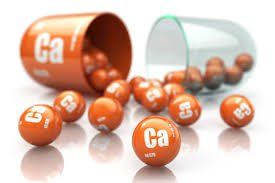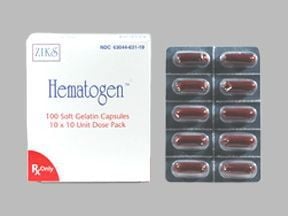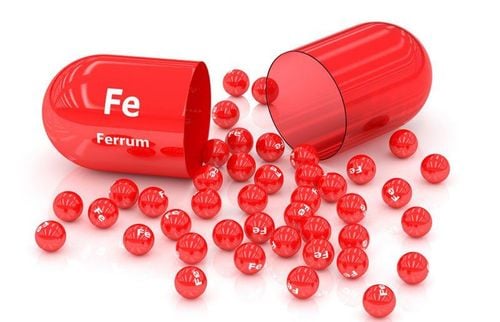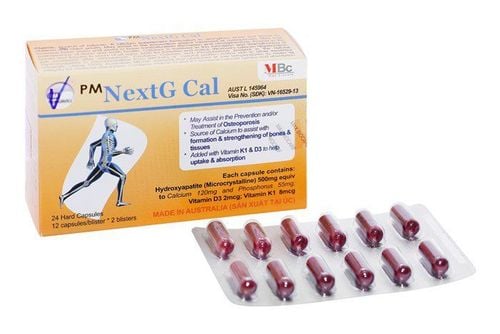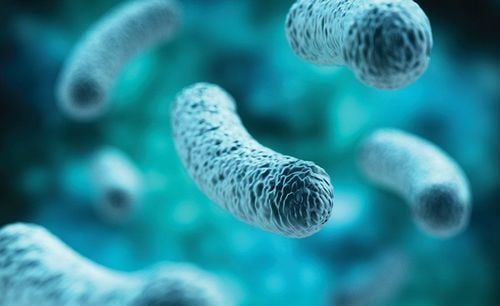This is an automatically translated article.
Iron and calcium are two very important minerals for our health. To make iron and calcium supplements safe and effective, let's explore the issues associated with taking calcium and iron supplements.
1. Why does the body need calcium?
Calcium is one of the most important nutritional elements for bone, teeth and muscle health. The skeleton contains 99% of the body's calcium. When the body does not get the required amount of calcium, the calcium in the bones will have to be used. People such as postmenopausal women need calcium supplements to help prevent osteoporosis.
Patients with rheumatoid arthritis and other forms of inflammatory disease who are at higher risk of bone loss and fracture also need calcium supplements.
2. Why does the body need iron?
Iron is necessary for the growth and development of the body, participates in the process of creating red blood cells, preventing anemia. In addition, the body uses iron to produce energy, transport oxygen, and synthesize hormones. When the body does not have enough iron, it affects the production of red blood cells and can lead to iron deficiency anemia.
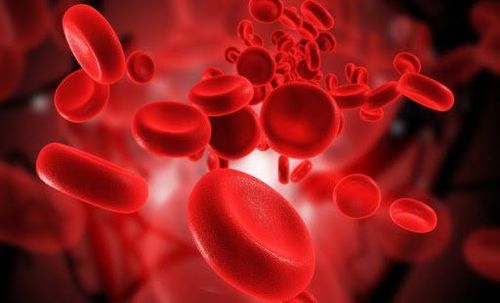
Sắt nằm trong nhóm khoáng chất cần thiết phải cung cấp đủ cho cơ thể, nhất là phụ nữ
Iron deficiency is the most common vitamin or mineral deficiency worldwide. Children, women of childbearing age, pregnant women, regular blood donors, and people with certain medical conditions are especially susceptible to iron deficiency. Iron is especially important during pregnancy, so for healthy fetal development, iron supplementation is often recommended by doctors.
3. What is the body's need for calcium?
Dairy products, such as milk, yogurt and cheese, are the best natural sources of calcium. Some vegetables contain calcium, such as cabbage, kale, and broccoli, while grains contain only small amounts of calcium.
The amount of calcium needed for health depends on age and gender.
According to research, the daily calcium requirement of an immature person (aged 14 to 18 years) is 1,300 milligrams, while the need for a normal adult under 50 years old is 1,000 milligrams of calcium per day. In addition, the daily requirement of people over 51 years old is 1,000 milligrams of calcium for men and 1,200 milligrams of calcium for women because postmenopausal women have higher calcium requirements than men of the same age. Pregnant and breastfeeding women in particular need to get 1,000 milligrams of calcium to 1,300 milligrams of calcium per day.
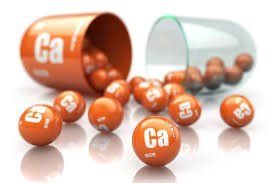
Mỗi cơ thể cần cung cấp một lượng canxi khác nhau tùy thuộc vào độ tuổi và giới tính
4. What is the body's iron requirement?
Lean meat and seafood are the richest sources of iron. You can also get iron from nuts, beans, vegetables, and fortified grain products like breads and cereals.
Recommended daily iron intake is higher for vegetarians. According to the NIH, non-meat eaters need 1.8 times as much iron because the iron in plant-based foods is not as bioavailable as the iron of animal origin. For non-vegetarians, the daily iron requirement is 8 milligrams to 11 milligrams for men and 15 milligrams to 18 milligrams for women. The reason is because women lose blood after each menstrual period, have a higher need for iron to produce red blood cells, making blood for the body. Pregnant and nursing women should get 9 milligrams to 27 milligrams of iron per day.
5. What are the causes of iron and calcium deficiency?
Although food is the best way to provide iron and calcium, supplements can be a supportive option if the diet is deficient in these two minerals, especially those with increased requirements. as tall as a pregnant woman.
Causes of calcium deficiency and the need for calcium supplements are not limited to the following:
Vegetarian or vegan diet Lactose intolerance Certain medical conditions reduce calcium absorption , such as celiac disease or inflammatory bowel disease Osteoporosis Long-term corticosteroid therapy Causes of iron deficiency may but are not limited to the following:
Certain medical conditions such as heavy menstrual bleeding, peptic ulcer, hiatal hernia or colorectal cancer, celiac disease or gastric bypass surgery Vegetarian or vegan diet Increased need during pregnancy
6. Effect of milk, calcium and antacids on iron absorption?
A study published in the Journal of Food Science Technology in April 2016 examined the diets of 60 rural women to determine the role of dietary factors in absorption of iron in the diet. Although the study was small and therefore may not be applicable to all populations, it produced interesting findings that calcium as well as zinc negatively affect absorption. Iron .

Các yếu tố trong khẩu phần ăn có ảnh hưởng lớn tới khả năng hấp thụ sắt của cơ thể
Specifically, the results show that eating less iron-rich foods, such as meat, and consuming more calcium foods causes iron and zinc deficiency. The researchers noted that adding 150 milligrams of calcium to a hamburger meal reduced iron absorption by 50 percent. The authors suggest increasing iron intake or avoiding calcium-rich foods such as milk and iron at the same time as a practical solution to limit the absorption competition of calcium with iron.
However, another study published in the March 2016 issue of Advances in Nutrition looked at the use of calcium carbonate by pregnant women to prevent preeclampsia. It has been reported that calcium inhibits iron absorption, but not significantly. Therefore, the author recommends that doctors should not advise patients to take separate calcium pills and iron tablets, which can affect compliance with the iron and calcium supplement regimen.
In addition, some products can interact with iron leading to inhibition of iron absorption including: Antacids with aluminum hydroxide Al(OH)3, magnesium hydroxide Mg(OH)2; quinolone and tetracycline antibiotics; proton pump inhibitors such as omeprazole, lanzoprazole; drugs that affect thyroid hormones such as levothyroxine; cardiac glycosides such as Digoxin; high blood pressure medications such as Methyldopa; products containing caffeine such as green tea, coffee, polyphenols such as tannins. On the contrary, vitamin C and vitamin C-rich fruits with iron will facilitate the absorption of iron for the body.
Therefore, depending on the deficiency and the need for iron and calcium supplements and the condition of each patient, the doctor will consider and guide the user in the appropriate dosage and supplement method to ensure the best results. best effect on the patient's health.
Please follow the website ( www.vinmec.com ) for more information on health care instructions, which we will update regularly.
Please dial HOTLINE for more information or register for an appointment HERE. Download MyVinmec app to make appointments faster and to manage your bookings easily.
References: medlineplus.gov, webmd.com, livestrong.com, pampers.com




